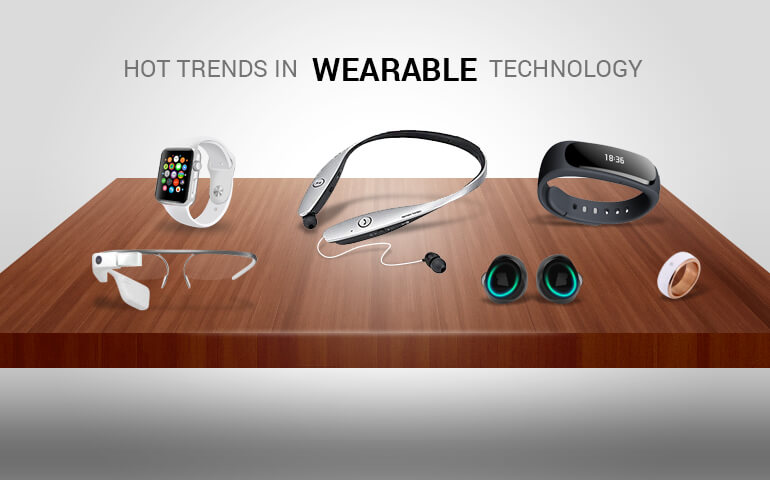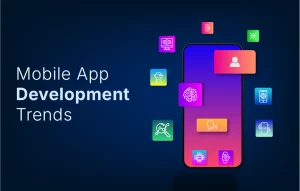Five years ago, we heard people say that the next big thing in technology will be wearables, and today, wearables are used extensively for personal as well as professional use. According to Tech Times, “Employees with wearable devices increased their productivity by 8.5% and their job satisfaction by 3.5%.”
Wearables have spread across various industries with the highest number of applications in healthcare. According to a report in readwrite.com, wearables are even being used to gather patient generated data for cancer studies. Apart from this, wearable devices are used to monitor and track health and fitness. Wearable technologies have also got their applications in entertainment and sports. A recent report in TechCrunch talks about how the US women’s Olympic volleyball team is using a wearable by VERT to monitor jumps.
Seventy percent of consumers are already aware of wearables, and about one in six (15%) of them currently use wearable tech such as smart watches and fitness bands in their daily lives. – Nielsen Research
Wearables – Then and Now
When you hear the word ‘wearables’, the first thing that strikes your mind is either the Apple Watch or Google Glass. Apart from smart watches and eye wear, even wrist bands were highly popular when they first came out, especially for health and fitness. One of the most popular wrist bands was Fitbit, an activity tracker that can measure heart rate, steps walked, steps climbed, sleep quality and a lot more.
However, with the constant advancement in technology, the wearable industry has grown at a rapid rate. According to Statista, “Forecasted wearable device market value for 2018 is $12,642 million and forecasted unit shipments of wearables worldwide for 2018 are 111.9 million”.
Today, wearables are not just about smart watch, smart eye wear or smart wristbands. Apart from wrist and eyes, they have also found places on our head, ears, fingers and feet leading to smart headband, smart ear wearable, smart ring and smart shoes respectively.
Let’s breeze through some of the latest wearables that have made our lives easier and better.
Smart Headbands
With the combination of ancient traditions and modern technology, the headband synchronizes your mind and body to improve your concentration and sleep and relieve you from stress. All you have to do is position the headband on the back of your head, connect it to your smartphone by plugging in, select your mood from the app and enjoy the benefits. While this one focuses on mental health, a smart headband by another company saves athletes from head injuries, as it detects the injury and informs the referees or coaches through an app.
Smart Rings
Smart rings have captured the attention of millions in the recent past. Many companies are making smart rings these days. One company has manufactured a ring that can be paired with smartphones, and the ring displays the notifications along with the icon and the number of corresponding notifications.
A ring made by another company lets you unlock the doors and smartphones as well as transfer information. One more type of smart ring enables you to make contactless payment in seconds, validates you on public transport and unlocks smart locks.
A health oriented ring by another company measures distance, heart rate, steps, calories and sleep, helping you with better health and fitness.
Then there’s a smart ring which helps you send alerts to the specific contacts or authorities through GPS during an emergency. All you have to do is press and hold a button on your ring for three seconds with one hand and an alert will go out along with your location to all the trusted contacts that you had chosen while setting up your ring for the first time. Thankfully, the button is too hard to get pressed accidentally. Even if you press accidentally, it gives you 20 seconds to cancel it. You can cancel the alert by typing in your password, so that no one apart from you can do it. If anyone forces you to cancel the alert, you can type in a special password set for the forced cancellation. Once you send the alert, your emergency contacts will get notified through text, vibration, email, push notification or call.
Smart Ear Wearables
A lot of companies are into the manufacturing of smart ear wearables. One of the smart ear buds allows us to hear music just by titling our head. Then there’s a smart earing that helps us keep track of our heartbeat, heart rate and calorie intake. Another kind of hearable has got integrated sensors inside the hearing aid. Accelerometers inside it can sense if a person falls and as it is paired with a smartphone, it triggers an automatic call to the doctor or caregiver immediately. Arthritis patients can call a doctor even without pressing any buttons. This hearable benefits doctors and caregivers too, as it enables real time monitoring.
Smart Shoes
While some smart shoes can use Google Maps to guide us towards our destination, there are others which can tell you how healthy your feet are. These smart shoes can do a lot for you using an embedded sensor and a mobile app (Android and iOS). Apart from measuring impact and balance, it also counts the number of times your feet touch the ground when you are running, which is known as track cadence. Moreover, it tells you which part of your feet touch the ground first as well as the amount of time your feet were in contact with the ground.
Wearables have potential applications in healthcare as well as in entertainment. The way wearable industry is progressing now, it will find its place in a lot more industries, as it continues to expand. The future of wearables is bright and we look forward to innovative wearable devices that keep surprising us.









